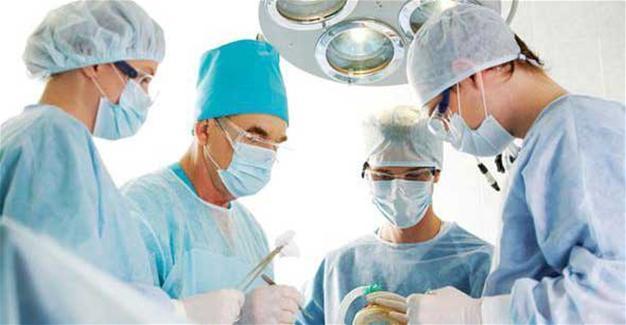Successful doctors refrain from being heart, vascular surgeons in Turkey
ISTANBUL

None of the 100 doctors who scored the highest in the most recent Turkish Medical Specialty Exam (“TUS” in Turkish) have chosen the fields of heart or vascular surgery for their residency training program, prompting experts to issue a warning.
The most successful doctors instead chose the fields of radiology, ophthalmology, dermatology, physiotherapy, otorhinolaryngology, and pediatrics.
The head of the Turkish cardiovascular surgery foundation, Prof. Dr. Ahmet Rüçhan Akar, thinks that low income, unjust performance system, busy shifts, care of patients with high risk, and malpractice, especially seen in the cardiovascular surgery field, are behind the doctors’ choice of specialization fields.
“You might not be able to find a cardiovascular surgeon in the near future who can conduct a complex heart surgery,” Akar warned.
“Surgeons, even for a patient at low risk, spend nine to 10 days on preparations ahead of the operation. Besides, cardiac surgery is done with a team of more than one surgeon, perfusionists, and anesthetists. Even if we conduct an open-heart surgery every day for one month, we cannot go beyond the hospital performance average. On top of that, doctors of other specialties receive supplementary payment when they work extra hours,” Akar noted.
Another factor that refrains doctors from choosing cardiology is that it is the only health service in Turkey that does not impose “additional fees” on patients, according to Akar. “On this day, the fact that cardiovascular surgery is the only branch still left in the list of ‘health services for which no additional fees are taken’ damages principles of equality [among health fields], and therefore affects doctors’ morale,” he noted.
Akar emphasized that as human lifespan extends every day, people will need cardiologists more than ever.
“Bypass surgeries will remain the most important treatment for vascular diseases…Patients who already had a bypass surgery and whose veins have been congested again will need a second, or even, third surgery,” he said.
There are a total of 1,460 cardiovascular specialists in Turkey, corresponding to one surgeon for every 53,000 residents. Of the 1,460 doctors, about 300 are still enrolled in their residency programs.
After completing a six-year degree in medicine, doctors are required to enter and obtain a sufficient result on the TUS exam in Turkey in order to be enrolled in a residency program of their desire. The results of the exam, which is held twice a year, determine the specialty field that a junior doctor can take.
 None of the 100 doctors who scored the highest in the most recent Turkish Medical Specialty Exam (“TUS” in Turkish) have chosen the fields of heart or vascular surgery for their residency training program, prompting experts to issue a warning.
None of the 100 doctors who scored the highest in the most recent Turkish Medical Specialty Exam (“TUS” in Turkish) have chosen the fields of heart or vascular surgery for their residency training program, prompting experts to issue a warning.